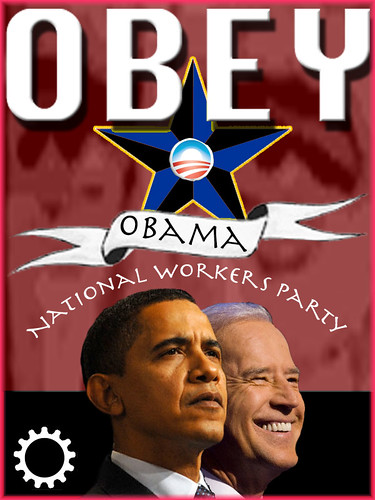Other than President Barack Obama, perhaps no one's political future is riding more on the U.S. Senate battle to revamp the healthcare system than the chamber's Democratic majority leader, Harry Reid.

With Reid already in danger of being unseated in next year's congressional election, the fight over the Democratic president's top domestic priority gives him a chance to prove his clout to voters in his home state of Nevada.
If Reid helps pass what proves to be a popular bill, he will earn new power and respect, and increase his prospects for winning a fifth, six-year Senate term in November 2010.
But if the bill fails or draws public contempt, the Senate leader will be pinned with much of the blame, increasing chances that Republicans will unseat him and perhaps other Democrats next year.
Reid effectively raised the bar with recent campaign ads that describe him as "the most powerful senator Nevada's ever had," said Jennifer Duffy, who tracks Senate races for the nonpartisan Cook Political Report.
To be sure, all of the Senate's 100 lawmakers have much riding on the healthcare outcome.
"No matter how they vote, a portion of their constituency is going to be angry," Duffy said.
"In some ways, Democrats are damned if they do and damned if they don't," said Paul Light of New York University's Center for the Study of Congress. "If they don't pass it, it's a failure of achievement. If they pass it, they will have to deal with implementation, which could be problematic."
Round one of the Senate floor fight starts on Saturday when Reid and his fellow Democrats will seek to clear the first procedural hurdle -- mustering 60 votes to begin debate on the legislation.
Republicans, led by Senator Mitch McConnell, are also at a crossroads.
If they stop the bill, they will be hailed by their party's conservative base, which has denounced the plan as an excessive federal reach into the private sector. But if Republicans fail to block it -- and some of them cross the aisle and back it -- they will be pilloried by members of their party's increasingly vocal right wing.
Last year, they blasted McConnell and others for backing a $700 billion bailout of Wall Street. They have also accused Republicans of letting Democrats increase federal spending and the size of the U.S. government.
'TOUGH SPOT'
"McConnell is in a tough spot," said Ethan Siegal of the Washington Exchange, a private firm that tracks Congress for institutional investors. "He has to deliver on something -- stopping the bill -- that may be undeliverable" if Democrats stick together, Siegal said.
If the Senate passes a bill and the measure eventually drives down costs and extends coverage to millions of uninsured Americans, Obama and his fellow Democrats will bask in a historic achievement.
But if Obama signs legislation into law and it backfires, complicating the relationship between patients and their doctors or costing far more than expected, the president and his fellow Democrats could feel the heat for years.
And that could help Republicans pick up seats in Congress, beginning in next year's election, though key elements of the measure would not go into effect until 2014.
Defeat of the legislation could further erode public support for Obama, whose approval rating has fallen since taking office in January from above 60 percent to about 50 percent.
A politically wounded Obama would undermine Democrats' chances to retain their robust majorities in the Senate and House of Representatives in the 2010 election as well as dim his chances for a second term.









